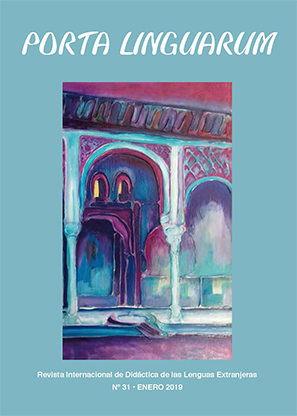‘Wicked’ use of English slang in relation to identity development in an elementary EFL classroom
DOI:
https://doi.org/10.30827/portalin.vi31.13827Abstract
This study examined how English slang is used and learnedby EFL learners in relation to identity construction. A Korean elementary sixth-grade classroom was ob-served ten times in a non-participant way. Additionally, the students and the teacher were in-terviewed in a semi-structured way, and the students were asked to write journals concerning their in-class learning of English. The outcomes indicated that many variables affected - in a complicated way - the learners’ use and learning of English slang in relation to identity construction. In particular, the processes of English slang use and learning varied depending on proficiency levels and types of classroom dyadic interaction. The teacher also influenced parts of such processes by instituting a practice of interpretation of learner identity in her classroom context. Based on the findings of the study, implications are suggested.Downloads
Downloads
Published
2019-01-31
How to Cite
Kang, D.-M. (2019). ‘Wicked’ use of English slang in relation to identity development in an elementary EFL classroom. Porta Linguarum An International Journal of Foreign Language Teaching and Learning, (31), 75–95. https://doi.org/10.30827/portalin.vi31.13827
Issue
Section
Articles [Regular Issue]



















